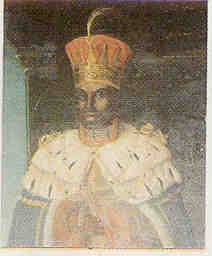| Muhammad Ali Shah | |||||
|---|---|---|---|---|---|
| Nawab | |||||
 | |||||
| Nawab of Awadh | |||||
| Reign | 7 July 1837 – 7 May 1842 | ||||
| Coronation | 8 July 1837, Farhat Bakhsh Palace, Lucknow | ||||
| Predecessor | Nasir-ud-Din Haidar Shah | ||||
| Successor | Amjad Ali Shah | ||||
| Born | 1774 Lucknow | ||||
| Died | 7 May 1842 (aged 67–68) Farhat Bakhsh Palace, Lucknow | ||||
| Burial | |||||
| Spouse | Malika Afaq[1] Malika Jahan[1] | ||||
| Issue | Asghar Ali Shah Amjad Ali Shah Wajid Ali Shah Mirza Jawad Khan [2] | ||||
| |||||
| House | Nishapuri | ||||
| Dynasty | Oudh | ||||
| Father | Saadat Ali Khan II | ||||
| Religion | Shia Islam | ||||
Nasser-ud-daula Mu'in ad-Din Muhammad Ali Shah (1774[3] – 7 May 1842), was the third King of Oudh from 7 July 1837 until his death on 7 May 1842.
Biography
Muhammad Ali Shah was son of Saadat Ali Khan II, brother of Ghazi-ud-Din Haidar Shah and uncle of Nasir-ud-Din Haidar Shah.[4] He attained the throne with British help following the demise of his nephew, as opposed to the ex-queen mother's (Badshah Begum) attempts to nominate another successor, Munna Jan (the son child of Nasir-ud-Din Haider, whom his father had disavowed). Padshah Begum and Munna Jan were afterwards imprisoned by the British in the fort of Chunar. [5]
Muhammad Ali Shah of Oudh built the Shrine of Hurr at Karbala.[6]
Death
He died on 7 May 1842 AD.[7]
Gallery
- The crown of Muhammed Ali Shah Bahadur, kept in Chhota Imambara
- Chhota Imambara in Lucknow
References
- 1 2 Hasan, A. (1983). Palace Culture of Lucknow. B.R. Publishing Corporation. pp. 156–157. ISBN 978-93-5050-037-8.
- ↑ Sleeman, William (1858). A Journey through the Kingdom of Oude. Richard Bentley.
- ↑ White, W (1838). The Prince of Oude, or, The claim of the Nawaub Ekbal-ood-Dowlah Bahador to the throne of Oude. William Strange. p. 82. ASIN B0006F9CDK.
- ↑ HISTORY OF AWADH (Oudh) a princely State of India by Hameed Akhtar Siddiqui
- ↑ Sleeman, William (1858). A Journey through the Kingdom of Oude. Richard Bentley.
- ↑ Al Mashad al Husain-Karbala: Phases of Destruction & Restoration « Muslim Unity
- ↑ History Of Lucknow Archived 10 June 2008 at the Wayback Machine

